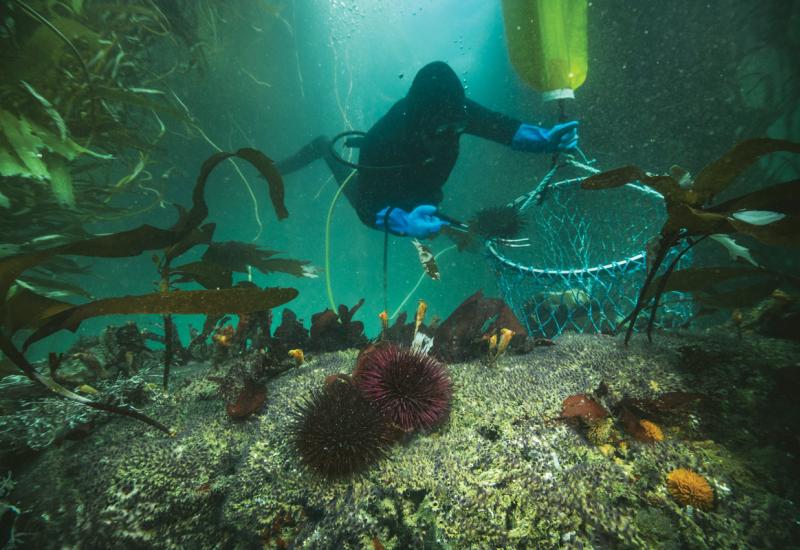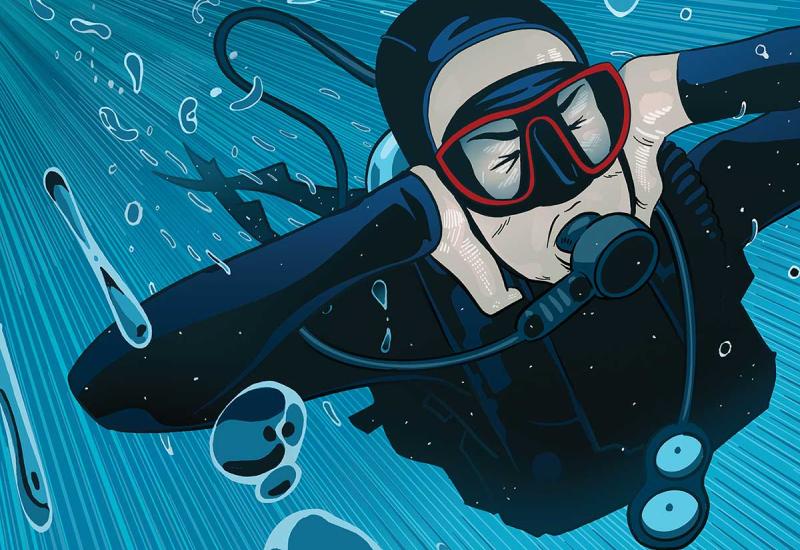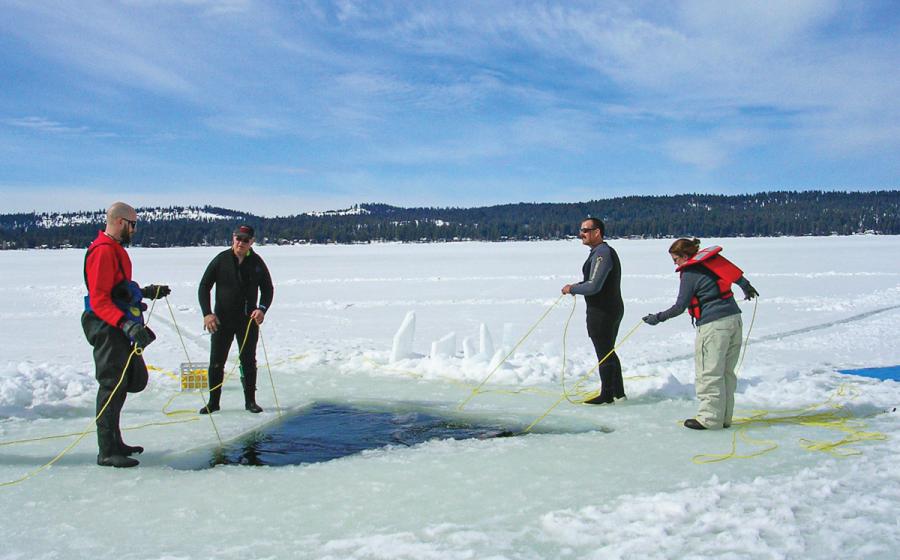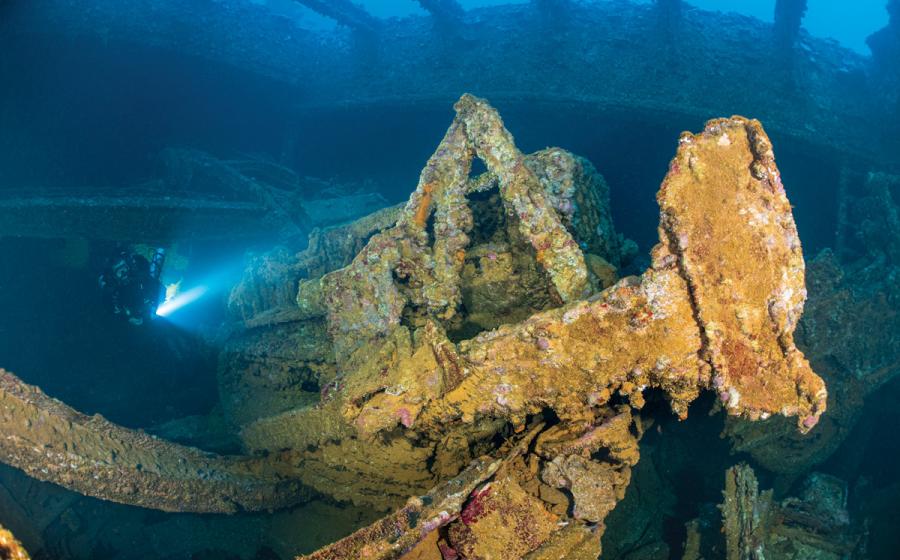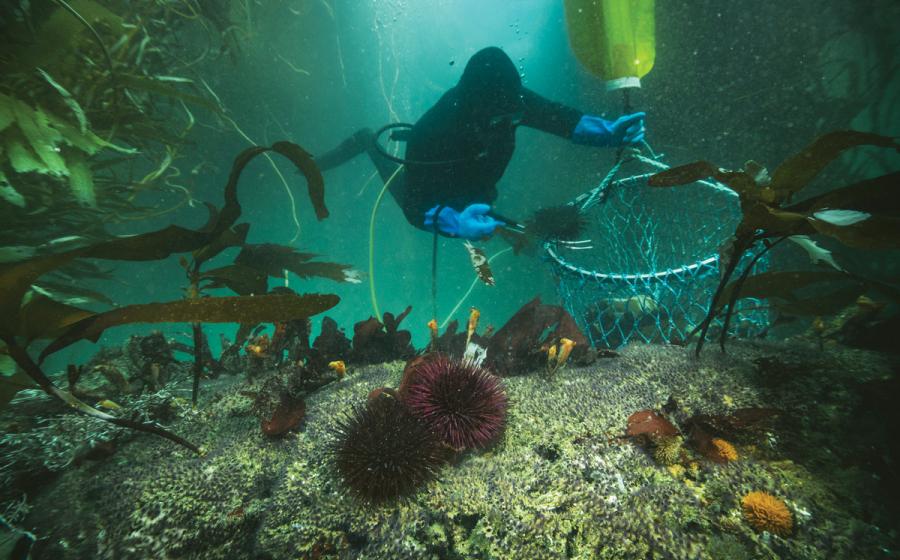A Costly Prize | Lessons for Life
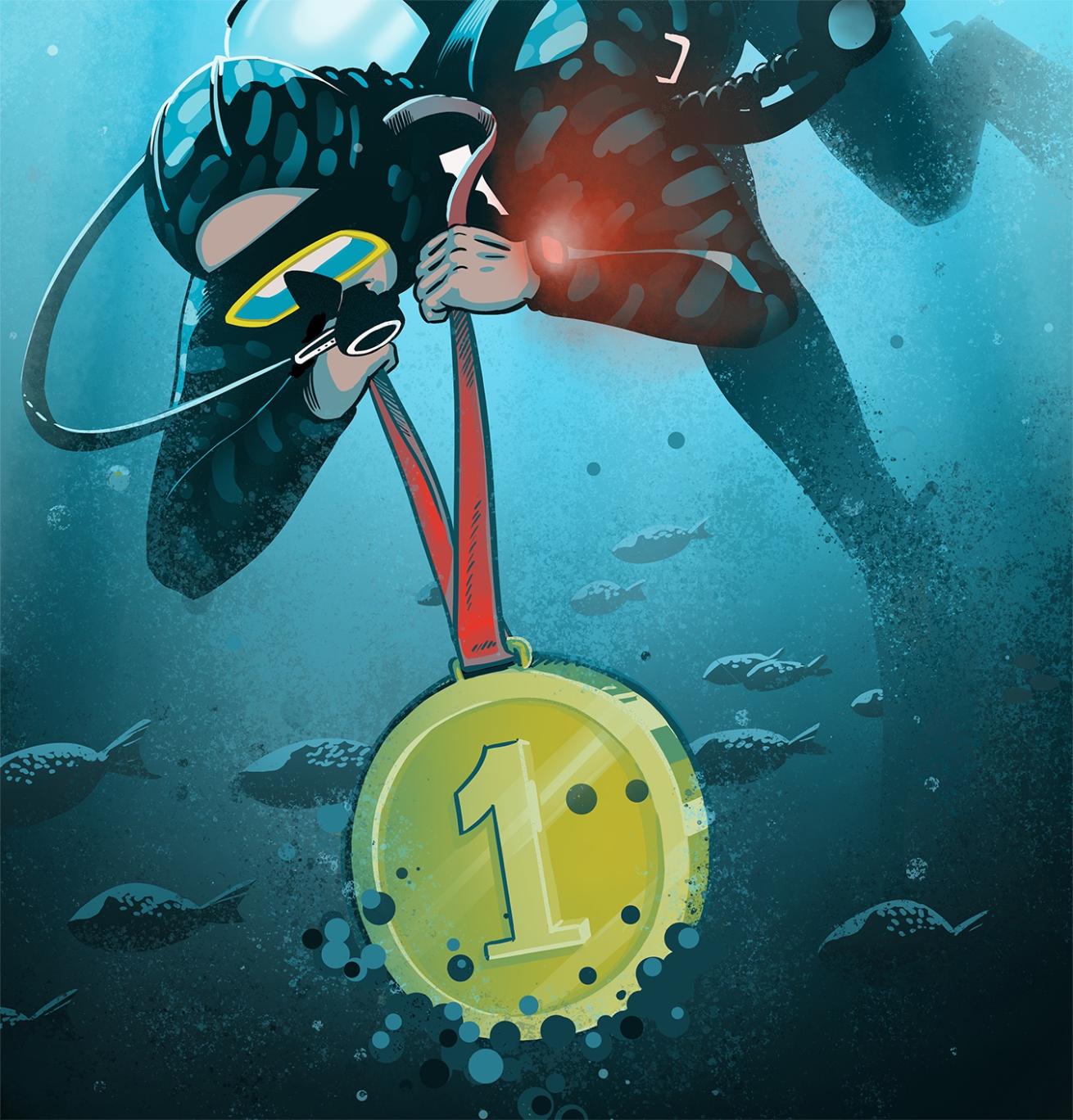
Illustration: Steven P. HughesA diver ignores his computer in pursuit of a trophy.
In the back of his mind, Rex knew he was pushing his dive limits, but he really didn’t care. He was after the grand prize in the spearfishing tournament, and that was his only focus. The grand prize wasn’t even that much money, but he wanted the bragging rights of spearing the biggest fish. Underwater, he heard his dive computer beeping, but he ignored it and swam after another prize.
The Diver
Rex was a 42-year-old male who had been scuba diving for about 10 years. He had completed his open-water certification and loved to spearfish with his buddies. He regularly read dive magazines to keep up with new gear and techniques but had never been interested in taking additional training beyond his initial course. He always said he knew enough about diving to catch the biggest fish from his boat.
The Dives
Rex had just bought a new dive computer one of his dive buddies suggested for him, but he didn’t take the time to read the manual and didn't understand how it worked. He simply used it to monitor his depth and time. He didn’t worry about his no-decompression limits or ascent rate.
For the spearfishing tournament, Rex made a total of four dives to 33, 115, 100 and 108 feet of sea water. He only remembered the depths from the dives. He didn’t know how to check his bottom times and didn’t pay attention to his surface intervals, either.
Rex remembered seeing a warning on his computer display that he shouldn’t make the fourth dive, but he ignored it and made the dive anyway. After all, he was behind in the total count of fish he had speared.
The Accident
Later that night, Rex felt a pain in his left side and his legs felt like lead. They just wouldn’t work right. He also noticed he kept forgetting what he was doing, but he doubted anything was wrong. He kept telling himself that he was just worn out from the sun and diving. Still, Rex went to his dive buddy’s house and let him know things weren’t quite right.
His buddy gave him 100 percent oxygen from a demand mask for an hour. Rex felt a little better that night and went back home to sleep it off. The next day, Rex still didn’t feel well. The pain in his side was back and he was still confused, but he didn’t tell anyone how he was feeling. He called in sick to work and stayed home to rest.
Finally, two days after the tournament, he called a friend to drive him to the emergency department. On examination, the doctor determined he was ataxic— meaning he had an unsteady, staggering walk, with patches of numbness and tingling on his body. The pain in his side was still there as well. When Rex told the doctor that his symptoms began right after his dive series, the doctor ordered treatment in the local hyperbaric chamber.
Within a few hours, Rex began a U.S. Navy Treatment Table 6, a treatment that lasts four hours and 45 minutes. His symptoms began to improve. The next day he went back into the chamber for a U.S. Navy Treatment Table 5—a treatment that lasts two hours and 15 minutes. After the second treatment, Rex’s neurologic symptoms cleared up, but he still had some pain in his side. Needless to say, Rex did not win the spearfishing tournament.
Analysis
Aside from learning to never hold your breath and monitor your gas supply, one of the most important things divers learn in their open-water course is to monitor their bottom time and no-decompression status. Some divers learn to use manual tables, and others dive computers, but it is still taught in every course.
In this case, Rex failed to learn how his computer worked and disregarded its warnings. The computer warned him not to dive again after the third dive, but he did anyway. His fourth dive simply added additional nitrogen into his system when his body was already overloaded and trying to remove what was already there. Instead of going to the hospital when he felt pain and weakness, he attempted to self-medicate and then spent a second day resting.
Oxygen first aid can help reduce symptoms, but it is not definitive treatment and a hyperbaric chamber ride is sometimes necessary. Once he felt some symptom resolution while breathing oxygen, he should have immediately gone to the hospital. Rex is fortunate the hyperbaric treatments resolved his most severe symptoms. The pain in his side was likely a tissue injury that would resolve itself with rest and time—much like a sports injury.
Divers can avoid situations like this by simply following their dive computers. But dive computers are just tools. You still have to use the most important computer you have on your dive—the one between your ears.
Lessons For Life
- Monitor your bottom time and no decompression limits. Understand what your dive computer is telling you, and always follow its directions.
- Learn the signs and symptoms of decompression illness. DCI is rare, but it can happen, even when you follow all the rules. If you ever feel unusual fatigue or numbness and tingling soon after making a dive, say something and get evaluated by a medical professional trained in scuba diving medicine. Call the DAN hotline to discuss your symptoms with a professional dive medic who can advise you on the appropriate action to take.
- Understand how to use oxygen first aid. Receiving high concentrations of oxygen in the field when symptoms first begin can help oxygenate body tissues and also help you off-gas nitrogen.


